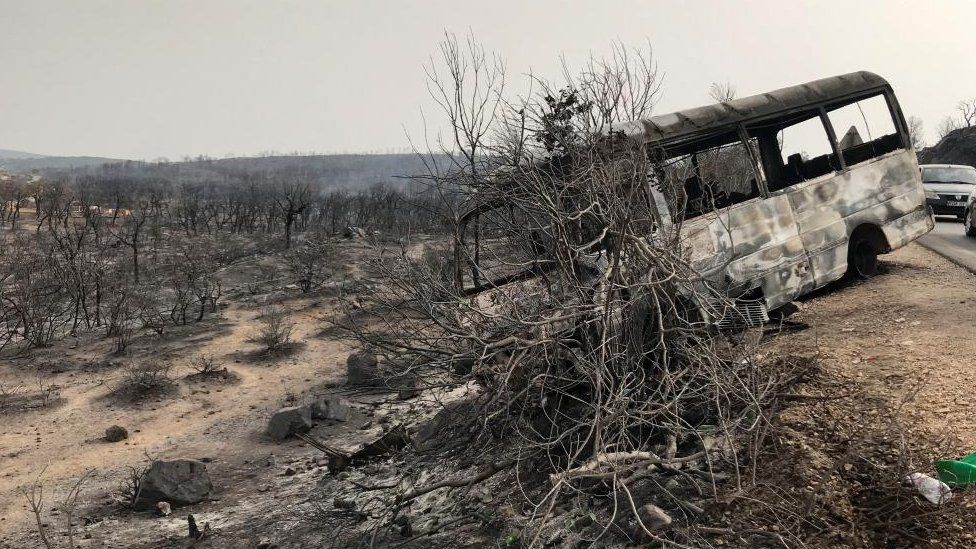According to Algeria's interior ministry, thousands of people have been evacuated and at least 15 people have died as a result of the country's widespread wildfires.
On Monday, 97 wildfires were reported to have started in 16 different provinces, affecting farmland, crops, and trees.
According to officials, 350 fire trucks and about 7,500 firefighters were battling the blazes.
In addition, 26 people were hurt, and 1,500 residents of Fenaia, Bejaia, Zbarbar, and Bouira had to leave their homes.
Ten soldiers lost their lives fighting the Bejaia fires. , . According to the Algerian defense ministry.
High winds in the mountainous Kabylie region east of Algiers caused the largest fires to spread to residential areas in the coastal towns of Bejaia and Jijel.
With temperatures reaching 48C, northern Algeria has recently experienced a record heatwave.
Several parts of North Africa are experiencing temperatures that are up to 7C warmer than usual for the season.
The north of the country is expected to continue to experience above-normal temperatures through the end of the month, according to the meteorological office for Algeria.
Sonelgaz, Algeria's national electricity and gas company, reported on Monday that electricity consumption had reached an "historic peak.".
Tout Sur l'Algerie (TSA), a prominent publication that regularly criticizes the government, claimed earlier this month that there had been a record-breaking use of air conditioners and that modern building techniques were ineffective at keeping homes cool compared to traditional brick construction.
Greece has been devastated by wildfires while southern Europe has been coping with a challenging heatwave.
The World Meteorological Organization, the UN's weather agency, has issued a warning that the heatwave in Europe could last into August and that extreme temperatures are now the norm in a world warmed by climate change.
The EU's Copernicus climate and weather service claims that the three hottest days ever recorded occurred in July.
On Monday, July 3, the average global temperature reached 16.89°C, and on Wednesday, July 4, it surpassed 17°C for the first time.
According to preliminary statistics, that was surpassed on July 5 when temperatures reached 17°C.
Extreme weather patterns, according to the World Meteorological Organization, show that more needs to be done to combat climate change.
The likelihood of hot, dry weather, which is likely to start wildfires, is increasing due to climate change. Since the start of the industrial era, the world has already warmed by about 1 degree Celsius, and temperatures will continue to rise unless governments drastically reduce emissions.







